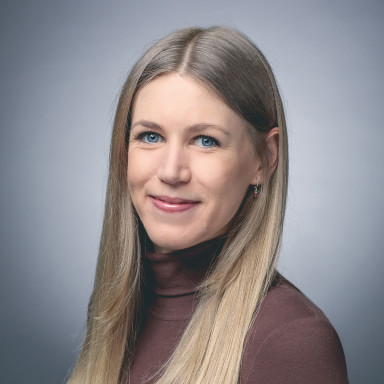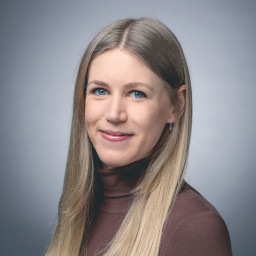Alexander Darwall is the trust’s lead manager since it launched in 2000 and has several decades of experience investing in European companies
The manager's focus on ‘special’ companies has helped deliver impressive results since launch
Performance has struggled in recent years though, partly due to weaker stock selection
How it fits in a portfolio
European Opportunities Trust aims to invest in high quality companies that offer good growth potential over the long run. Around half of the trust currently invests in the UK and France, with the rest in countries including Germany, Italy, Sweden, and the Netherlands. It’s mostly focused on larger companies but invests in some medium-sized ones too.
The trust could provide exposure to European companies as part of a broader investment portfolio focused on long-term growth. When investing in closed-ended funds you should be aware the trust can trade at a discount or premium to net asset value (NAV).
Manager
Alexander Darwall is a veteran investor in European companies, with an investment career spanning four decades. He started his career as an equity researcher at Goldman Sachs and later joined Jupiter Asset Management in 1995. At Jupiter, he became Head of Strategy for European equities and managed European funds. He’s managed the European Opportunities Trust since it launched in November 2000.
In 2019, Darwall left Jupiter to launch Devon Equity Management (DEM), became Chief Investment Officer, and took the European Opportunities Trust to manage at DEM.
Darwall has the support of Senior Fund Manager Luca Emo, who also moved from Jupiter, which he joined in 2006. Charlie Southern joined DEM in 2020 as a fund manager.
In June 2025, River Global, an asset and wealth manager, announced its intention to acquire DEM. As part of the deal, Darwall will move to River Global where he’ll become Co-Head of European Equities and continue to manage the trust. Southern will become Co-Head of European Equities alongside Darwall. Luca Emo is also expected to maintain a senior role. James Bird, who previously joined as a research analyst, has left the business. We’ll continue to monitor any changes as the deal evolves and once it’s complete.
Process
Darwall’s focus on ‘special’ companies has remained throughout his time managing the trust, and several criteria must be met to invest. The first is whether a company can withstand its competitors to grow stronger over the long run, and the manager prefers businesses that provide a product, service or unique advantage others will struggle to replicate. The second is that the company can grow and flourish in various economic environments. Some of these companies carry out business globally, which means they're not only dependent on customers based in Europe.
Companies with strong balance sheets, little to no debt, high recurring revenues and stable cash flows are also favoured. They must be able to demonstrate strong pricing power - the ability to pass on rising costs to consumers without denting demand too much. An emphasis is also placed on a company’s culture and governance.
Having a long-term focus typically means changes aren’t made to the trust too often. The manager tends to invest in a relatively concentrated number of companies, which means each investment could have a big impact on performance and increases risk.
New companies recently added to the trust include financials firm Wise and VAT Group, which provides solutions essential to production of semiconductors and digital technologies. Over the past 12-18 months, some defence businesses have been added to the trust as government spending in this sector is expected to ramp up over the coming years. This includes BAE, Thales and Exosens.
Investments are sold or reduced if one of three triggers is met. The first is if the business model is failing and could continue longer term. The second is if the manager identifies more exciting opportunities elsewhere. The third is based on valuations, for example if the share price of a company is too high and the manager no longer sees as much growth potential.
The third criterion was met by several companies in the trust recently, including German stock market operator Deutsche Börse, analytics provider RELX and Experian, which provides credit scores. One of the trust’s largest investments in pharmaceutical company Novo Nordisk has also been reduced as, while the managers still see long-term growth potential, they expect the rate of growth to be slower due to increased competition in areas like obesity drugs and injections.
Investors should be aware that the managers use gearing (borrowing to invest) which can magnify any gains or losses and increases risk. Gearing is currently 11%.
Culture
DEM was launched in 2019 and prides itself on its collegiate culture. It also promotes a strong focus on shareholders' interests and ensures they align with those of fund managers. Each manager sees themselves as part owners of the trust and invest a large portion of their own wealth in it. This helps make sure the trust is run in a way that benefits all shareholders.
As with any corporate change, we’re mindful of any changes to company culture following River Global’s acquisition of the group. At this stage, we expect the trust’s managers to maintain autonomy and freedom to invest the same way they’ve done for many years. Importantly, Darwall will remain the trust’s lead manager, and the team will also benefit from the broader resources, including marketing and distribution capabilities, on offer at River Global.
That said, we know mergers and acquisitions can lead to a period of disruption or further change. We’ll continue to monitor any changes to the group or investment team.
ESG Integration
DEM's employees are given the flexibility to integrate environmental, social and governance (ESG) considerations in a way that best fits their investment approach. Darwall is mainly focused on governance because he believes understanding and assessing a company’s culture is crucial to long-term success.
The fund managers engage with the companies they invest in on a range of issues, including board make-up and remuneration concerns.
The trust managers are responsible for voting and will consider each company resolution on a case-by-case basis. They believe voting is critical to fully understanding the company and the way it’s managed. The firm provides a good level of transparency around their voting activities.
That said, this trust doesn’t follow a sustainable mandate and, while its investment approach means it typically avoids areas considered to fall short on many sustainability measures, it does have the flexibility to invest in any sector.
Cost
The trust’s ongoing annual charge is 0.97%. Investors should refer to the latest annual report and accounts, and Key Investor Information for details of the risks and charging structure.
If held in a SIPP or ISA the HL platform charge of 0.45% (capped at £200 p.a. for a SIPP and £45 p.a. for an ISA) per annum also applies. Our platform charge doesn’t apply if held in a Fund and Share Account. As investment trusts trade like shares, both a buy and sell instruction will be subject to the HL share dealing charges. There is no dealing charge within a Junior ISA.
Performance
The trust has performed well since it launched in November 2000. Over this time, it's grown 945.56%* in share price terms vs 296.81% for the MSCI Europe index. Remember past performance is not a guide to the future.
While long-term performance is strong, the trust hasn’t performed as well as the benchmark index for several years. Looking at the past 12 months, the trust’s grown 3.36% compared with 10.19% for the index.
The manager’s quality growth investment style has broadly been out of favour over the past year, which has been a headwind for performance. Sectors the fund doesn’t tend to invest much in, such banks and construction, have been strong and this has also hurt.
Individual stock selection has also been weaker. Novo Nordisk has struggled during a period of increased competition, while software company Dassault Systèmes’ growth rate has slowed, though the managers maintain confidence in the business. Payment processing company Worldline and Oxford Instruments, which manufactures equipment for scientific research, were also weak, but have since been sold from the trust.
Given the concentrated nature of the trust, we expect performance to be volatile and different from peers and the broader European stock market at times. That said, Darwall has used the same investment process for many years, and it has the potential to deliver good long-term returns. As always though there are no guarantees.
Aug 2020 To Aug 2021 | Aug 2021 To Aug 2022 | Aug 2022 To Aug 2023 | Aug 2023 To Aug 2024 | Aug 2024 To Aug 2025 | |
|---|---|---|---|---|---|
European Opportunities Trust PLC | 27.21 | -18.13 | 14.05 | 13.00 | 3.36 |
MSCI Europe | 25.68 | -7.24 | 12.50 | 15.50 | 10.19 |


